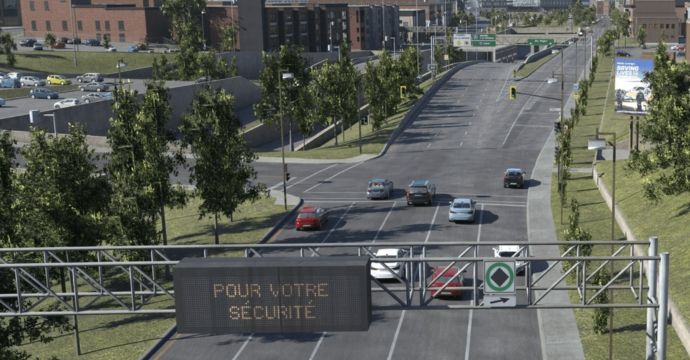
It enables the tuning of sensor systems, perception and control algorithms and testing of the full autonomous vehicle (AV) technology stack. The new platform reduces the industry's reliance on real-world testing and data collection to significantly improve the safety, productivity, consistency and cost of AV development.
"AV Elevate is a game-changing simulation platform, it is the most advanced solution to enable the complete AV technology stack to be tuned, trained and tested," said Matt Daley, rFpro Technical Director. "For the first time, AV developers can confidently reduce their reliance on real-world testing, instead subjecting systems to AV Elevate's highly accurate synthetic data. Now, testing and development can be massively and cost-effectively scaled like never before, removing the biggest barrier to the advancement of AVs."
To create AV Elevate, rFpro has integrated several new technologies to its existing platform including LiDAR, radar and camera models, a new Simulation Manager to simply define the full vehicle sensor suite and create base test scenarios with thousands of iterations, and compatibility with high performance computing in the cloud to conduct and scale the testing rapidly.
AV Elevate integrates high-fidelity sensor models for all major AV sensor types and
the platform's architecture allows for hundreds of sensors to be tested, enabling sensor fusion testing to a level of accuracy not previously possible.
It also automates the process of creating data to train perception and control systems making it 100 times faster and 150 times more cost-effective than manual annotation and is error-free.
The Simulation Manager provides a user-friendly way to set up and execute test scenarios simply and automatically. This allows large-scale simulations with multiple sensor systems to be created with ease. It quickly enables the creation of focused variations of the base scenario to be generated, creating hundreds of edge case scenarios for testing.
At the core of AV Elevate is rFpro's industry-recognised physically modelled virtual environments and ray tracing rendering technology. Its library of more than 180 real-world digital twins provides a highly accurate and diverse virtual proving ground with every element in the scene physically modelled with realistic material characteristics and a road surface model accurate to 1 mm.
